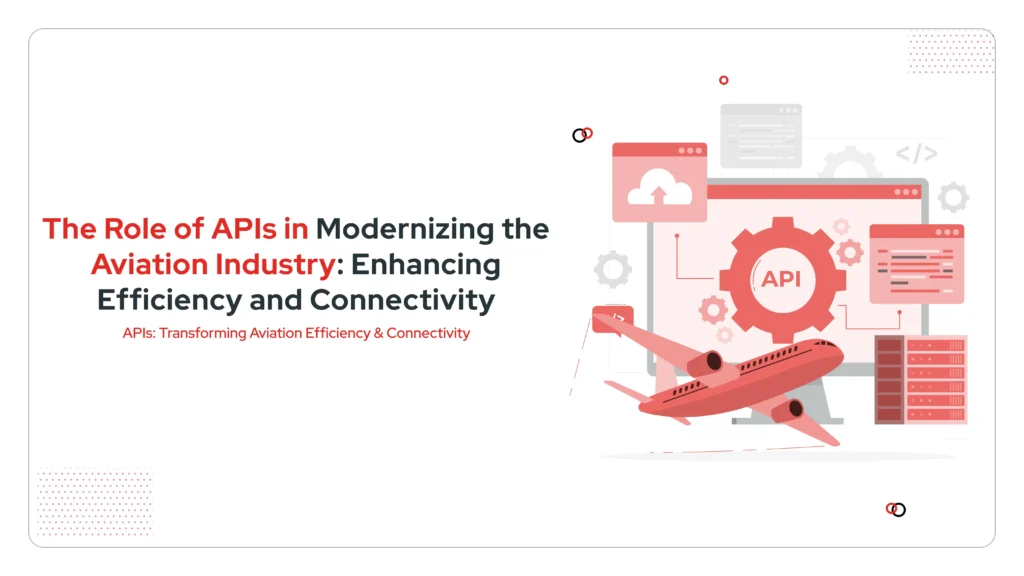
The aviation industry, once a bastion of tradition and red tape, is undergoing a dramatic transformation. At the heart of this revolution lies a technology that, while often unseen, is profoundly reshaping the way we travel: Application Programming Interfaces, or APIs. These digital connectors are enabling airlines, airports, and other industry players to streamline operations, enhance customer experiences, and unlock new opportunities for innovation.
Understanding APIs: The Building Blocks of Digital Connectivity
An API is essentially a set of rules and specifications that allow different software applications to communicate with each other. In the aviation industry, APIs serve as the bridge between diverse systems, from booking platforms and flight management systems to baggage handling and passenger services.
The Impact of APIs on the Aviation Industry
Streamlining Operations
Streamlining operations within the airline industry relies on real-time data exchange, automated processes, and predictive maintenance enabled by APIs. Through seamless API integration, airlines gain access to live data across key systems—such as flight schedules, baggage tracking, and airport operations—allowing for swift, informed decisions and optimized resource management.
Routine tasks, including check-in, baggage handling, and boarding, become automated, reducing human error and accelerating operational speed. Moreover, APIs enhance predictive maintenance by analyzing aircraft sensor data, enabling early detection of potential issues. This proactive approach allows for scheduled repairs, minimizing costly disruptions and promoting a more efficient, reliable travel experience.
Driving Innovation
APIs play a crucial role in revolutionizing the airline industry by enabling the development of new business models, fostering data-driven insights, and encouraging ecosystem partnerships. Airlines can use APIs to collaborate with third-party developers, creating innovative services such as dynamic pricing, tailored travel packages, and seamless connections to ground transportation.
Additionally, API-driven data analytics allow airlines to analyze passenger behavior, preferences, and market trends, leading to more informed decision-making. APIs also facilitate partnerships between airlines, airports, and industry stakeholders, promoting a connected and efficient aviation ecosystem that enhances operational efficiency, customer satisfaction, and service personalization across the travel experience.
Enhancing Customer Experience
Enhancing the customer experience in the airline industry has become increasingly attainable through the use of APIs, which empower airlines to deliver more personalized and seamless services. APIs enable airlines to collect and analyze passenger data, allowing for tailored offerings such as customized flight recommendations, seating preferences, and personalized in-flight experiences that cater to individual needs.
Furthermore, APIs simplify the check-in and boarding processes via mobile applications and self-service kiosks, which reduces wait times and elevates passenger satisfaction. Additionally, real-time flight information, including updates on flight status, delays, and gate changes, is readily available, minimizing passenger anxiety and enhancing the overall travel experience.

Case Studies: Real-World Applications of APIs in Aviation
Airline Check-in and Boarding
Airlines enhance check-in and boarding processes by leveraging APIs for mobile check-in and biometric boarding. Through mobile check-in, passengers can use their devices to receive boarding passes, minimizing airport counter lines. Additionally, APIs support biometric technologies like facial recognition and fingerprint scanning, enabling faster, more secure boarding, and enhancing overall travel efficiency and passenger experience.
Airport Operations
Airport operations benefit significantly from specialized APIs that streamline and enhance service efficiency. For instance, baggage tracking APIs monitor baggage movement from check-in to claim, offering passengers real-time updates while enhancing baggage handling. Similarly, APIs facilitate airport ground handling by coordinating services like fueling, catering, and cleaning, ultimately optimizing resource use and reducing aircraft turnaround times.
Travel and Tourism
In the travel and tourism industry, APIs play a vital role for travel aggregators by providing seamless access to flight schedules, pricing, and inventory across multiple airlines, enabling users to browse comprehensive options for flights and bookings. Additionally, APIs support dynamic packaging, allowing providers to create customized travel packages that bundle flights, hotels, and car rentals, offering travelers personalized experiences.
Challenges and Considerations
APIs provide numerous advantages but also bring specific challenges that require careful consideration. Data security and privacy are critical concerns, especially when handling sensitive passenger information. Implementing robust security protocols to protect data from cyber threats and unauthorized access is essential, ensuring passengers’ privacy is maintained.
Additionally, interoperability standards must be met to enable smooth communication across diverse systems, necessitating strict adherence to industry protocols and standards. Furthermore, API management plays a vital role, encompassing the need to monitor usage, enforce security policies, and optimize overall performance. Effective management ensures APIs remain secure, functional, and efficient in various operating environments.
The Future of APIs in Aviation
As the aviation industry continues to evolve, APIs will play an increasingly vital role in shaping its future. APIs in aviation hold immense potential as the industry embraces rapid technological change. APIs will become increasingly central in driving innovation and efficiency, integrating emerging technologies such as artificial intelligence, machine learning, and the Internet of Things (IoT). These advancements will enable APIs to deliver smarter, more responsive systems, enhancing everything from operational processes to customer interactions.
By adopting API-driven frameworks, the aviation industry can unlock unprecedented opportunities for collaboration and growth, leading to improved customer satisfaction and more seamless travel experiences. This commitment to API integration strengthens the industry’s role as a global leader in adopting and advancing cutting-edge technology.